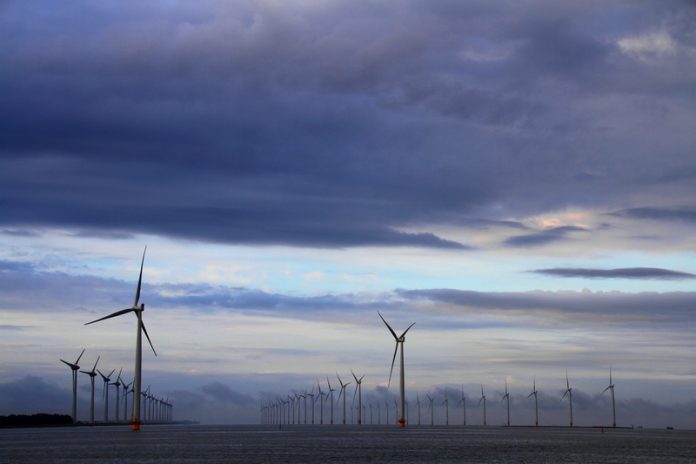Climate Service Centre Germany (GERICS) has been selected as a co-host for the new World Climate Research Programme (WCRP) Coordination Office for Regional Activities (CORA)
At a time when the urgency with which we need to respond to the risks posed by climate change has perhaps never been more widely acknowledged1, there is also a pressing need to provide and deliver climate information for regions, so that well informed responses in the form of climate policies, risk assessments, and adaptation measures, can be developed.
The World Climate Research Programme2 is the primary body for the international coordination of major research activities in relation to climate science with global and regional impacts. While the WCRPs work is primarily focused on delivering science results, the WCRP had recognised that there is a strong need to try and better connect the work that the WCRP does with the climate services community in particular, and with users of science-based climate information more generally3.
Given that the need for science-based climate information is most relevant at the regional level – where climate policies and adaptation measures will be enacted – in July 2017, the WCRP, following approval by the WCRP Joint Scientific Committee (JSC), invited applications to host a coordinator for WCRP regional activities, whose purpose would be to deliver on this identified need.
GERICS submitted a proposal to become the coordinator, and, following a competitive process, was selected to host the Coordination Office for Regional Activities (CORA), jointly, with the Bjerknes Centre for Climate Research (BCCR).
A Memorandum of Understanding (MoU) was signed between WCRP, GERICS and BCCR in July and August of 2018 and the Office officially opened on 1st September 2018, for a three-year implementation phase 2019-2021.
The office will identify opportunities, resources and partners to promote regional climate science in order to address key challenges and objectives in the context of the WCRP Strategic Plan 2019-2029. In addition, the office will assist in integrating and synergizing regional activities within WCRP in cooperation with all WCRP bodies, particularly with the Coordinated Regional Downscaling Experiment (CORDEX).
Climate information for the regions
Reliable and robust regional climate information is a prerequisite for helping society adapt to climate change and variability. As a climate services organisation active in various regions around the world, GERICS is only too well aware that some regions of the world are better catered for in this regard than others. GERICS staff can bring decade’s long experience to bear in resolving global and process level science questions, to deliver regional climate information. As such, the regional coordinator role represents a wonderful opportunity to further GERICS’ long-standing vision to see the worldwide provision of regional climate information at a range of timescales from observations of the present day, through seasonal and decadal predictions, to multi-decadal climate projections. The realisation of this vision requires, among other things, key breakthroughs in climate science. Being able to bring the various WCRP programmes together with the numerous complementary scientific communities to deliver this science is a task that GERICS is ideally placed to perform, together with colleagues from the BCCR.
GERICS, as a climate service center, can only perform its role effectively by having a strong connection to foundational science, together with an understanding of what users actually need to answer policy questions. As such, GERICS’ work is, almost by definition, trans-disciplinary in nature. These three elements that characterise GERICS’ work, correspond very closely to those of the WCRP regional climate initiative (figure 1), and as such, augurs well for the development of new activities that can quickly start to make a difference to the work of the WCRP in delivering climate information for regions.

work at the regional level. Source: WCRP
Commenting on the establishment of the joint office, Professor Daniela Jacob, Director of GERICS, stated, “Reliable and robust regional climate information is essential for informing appropriate responses to the threat posed by climate change. GERICS’ expertise at the regional level is complemented beautifully by the wide-ranging expertise at the global level that the Bjerknes Centre possess, which means that as a partnership, we offer a knowledge base that I find difficult to imagine being better. As such, the joint office promises to strongly contribute to the aims and objectives of WCRP and we are really excited about what the future holds for regional activities, both from a science point of view, and also in terms of helping to make sure that science is applied to solving real-world problems.”
To get in contact with the WCRP Coordination Office for Regional Activities (CORA), please contact Paul Bowyer, Senior Staff Scientist at GERICS, or at BCCR Ragnhild Stolt-Nielsen, Head of Administration BCCR.
References
1 IPCC, 2018: Summary for Policymakers. In: Global warming of 1.5°C. An IPCC Special report on the impacts of global warming of 1.5°C above pre-industrial levels and related global greenhouse gas emission pathways, in the context of strengthening the global response to the threat of climate change, sustainable development, and efforts to eradicate poverty http://ipcc.ch/report/sr15/
2 https://www.wcrp-climate.org/
3 https://www.wcrp-climate.org/WCRPpublications/2016/WCRP_Report_23_2016_Regional_Scoping.pdf
Please note: this is a commercial profile
Prof Dr Daniela Jacob
Climate Service Centre Germany (GERICS)











